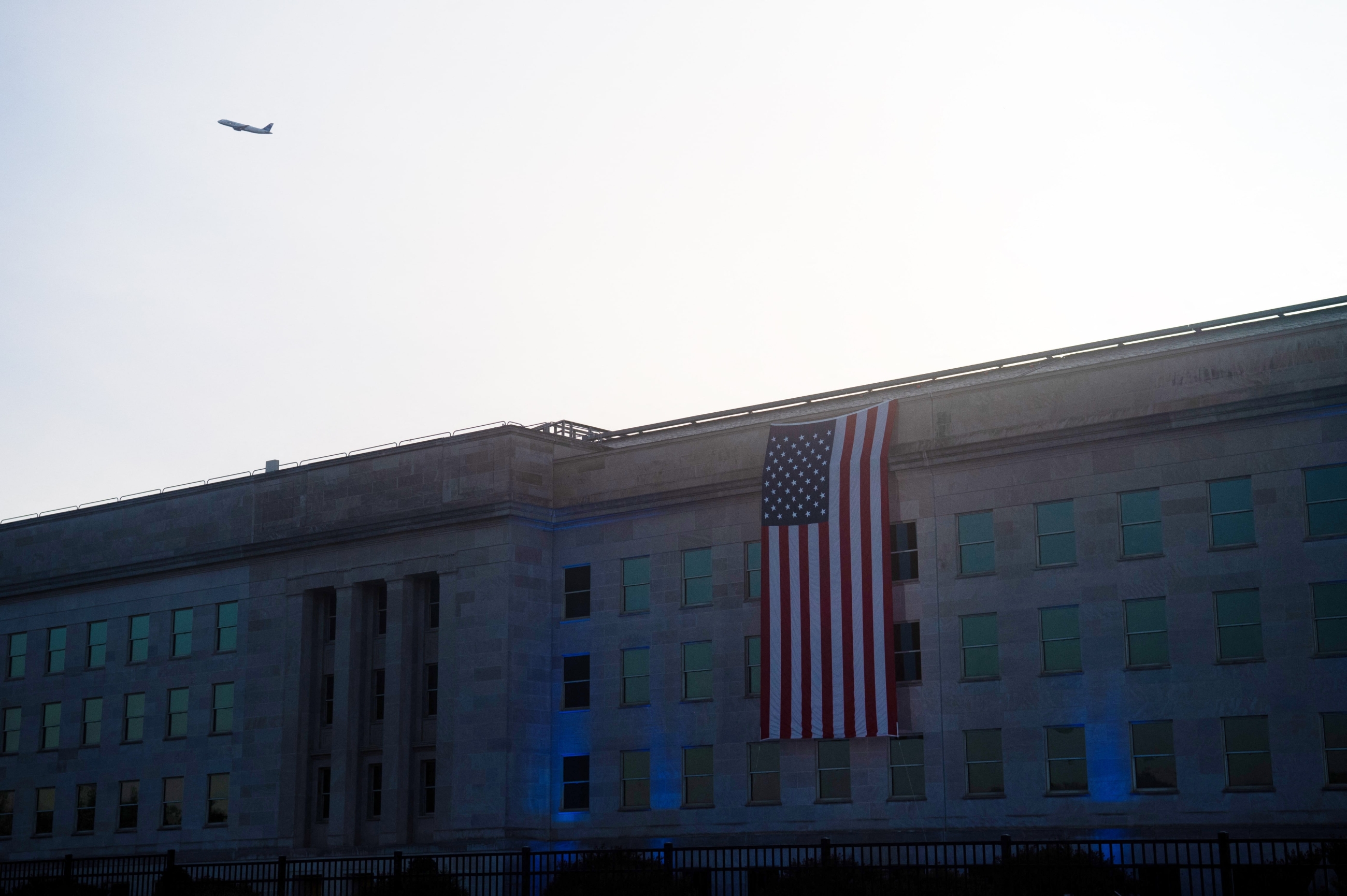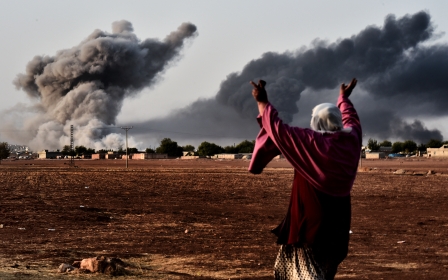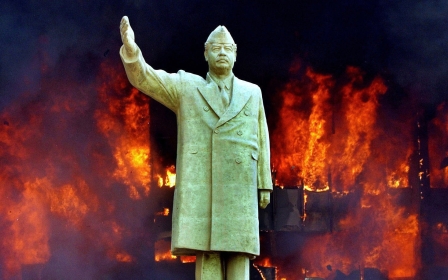9/11 attacks: FBI declassifies document into Saudi links to attackers

The FBI has declassified the first of a series of documents into ties between the 9/11 attackers and Saudi Arabia, but it contains no proof that the Saudi government was directly involved in the plot, as families of victims have long maintained.
Following an executive order from President Joe Biden, the FBI published the partially redacted document on Saturday, the 20th anniversary of the attacks in which 2,977 people were killed by al-Qaeda in New York, Pennsylvania and Virginia.
Families of the victims are party to a lawsuit against Saudi Arabia and have accused the country of being involved. Of the 19 plane hijackers on 9/11, 15 were Saudi nationals.
The Saudi embassy in the US welcomed the release of the documents and maintained that all accusations of Saudi complicity in the attacks were "malicious" and "categorically false".
Saudi Arabia has long been the subject of speculation about ties to the 9/11 attackers, though the 9/11 commission found no proof that any senior or government officials were involved.
New MEE newsletter: Jerusalem Dispatch
Sign up to get the latest insights and analysis on Israel-Palestine, alongside Turkey Unpacked and other MEE newsletters
The document released on Saturday holds no clear direct link between the Saudi government and the hijackers.
It does, however, detail links between hijackers and US-based Saudi nationals.
Travel, lodging and financing
The 16-page document shows ties between a man named Omar al-Bayoumi and two of the plot's Al-Qaeda operatives, Khalid al-Mihdhar and Nawaf al-Hazmi.
Bayoumi is a former civil servant working in civil aviation who was officially a student in California at the time.
A lawsuit filed by the families of the victims alleges that he was acting as a Saudi agent in 2000 and 2001. Bayoumi claimed he was only a passing acquaintance with Mihdhar and Hazmi, who were part of the team that flew American Airlines Flight 77 into the Pentagon.
Bayoumi has been questioned in recent months about his links to the attacks.
The source of the memo, referred to as PII, who was interviewed in 2009 and 2015, details correspondence and meetings between Bayoumi and the two men after they arrived in the US in 2000.
The source claimed Bayoumi had "very high status" in the Saudi consulate.
"Bayoumi's assistance to Hamzi and Midha included translation, travel, lodging and financing," the document states.
Mihdhar and Hazmi also allegedly met with a man called Fahad al-Thumairy, a Saudi consular official in Los Angeles and the imam of the King Fahad Mosque there. Bayoumi is said to have visited him before meeting Mihdhar and Hazmi.
Thumairy has claimed never to have met the hijackers, but witnesses had reportedly previously told FBI agents they had seen him in their company. After the 9/11 attacks, his diplomatic visa was withdrawn on suspicion that he could be linked to further plots.
The FBI document suggests Hazmi and Mihdhar were in contact with Bayoumi, Thumairy, and the source himself, while the two hijackers were in California.
Through meetings, phone calls and other contact, the document also links Bayoumi and Thumairy with Anwar al-Awlaki, a US-born al-Qaeda ideologue who was killed in a US drone strike in 2011.
Both Bayoumi and Thumairy reportedly left the US just weeks before the attacks.
A decades-long wait
Families of victims have long pressured the US administration to release documents related to the 9/11 investigations. Three presidents have refused to declassify any of the documents.
Jim Kreindler, one of the leaders of their lawsuit, said the document validated the claim that the Saudi government helped the hijackers.
"With this first release of documents, 20 years of Saudi Arabia counting on the US government to cover up its role in 9/11 comes to an end," Kreindler said in a statement, according to AFP.
More files are expected to be released over the next six months.
Family members of victims recently asked a US government watchdog to investigate their suspicions that the FBI lied about or destroyed evidence linking Riyadh to the hijackers.
The request, in a letter to Department of Justice Inspector General Michael Horowitz, said "circumstances make it likely that one or more FBI officials committed willful misconduct with intent to destroy or secrete evidence to avoid its disclosure".
A lengthy campaign
In response to the atrocities of 9/11, US President George W Bush launched a war he said would "not end until every terrorist group of global reach has been found, stopped and defeated".
This campaign has come to be known as the "war on terror," or America's "forever wars". Bush said at the time: "Americans should not expect one battle, but a lengthy campaign unlike any we have ever seen."
This war has spanned the globe and changed the face of the Middle East. As well as the full-scale invasions of Iraq and Afghanistan, the US has initiated targeted drone and air strike campaigns against militant groups in Somalia, Yemen, Pakistan, and Libya.
Brown University's Cost of War programme found that over 387,000 civilians have been killed as a result of fighting in post-9/11 wars. The number of war refugees and displaced persons stands at 38 million. The US is conducting counter-terror activities in 85 countries.
This article is available in French on Middle East Eye French edition.
Middle East Eye delivers independent and unrivalled coverage and analysis of the Middle East, North Africa and beyond. To learn more about republishing this content and the associated fees, please fill out this form. More about MEE can be found here.





